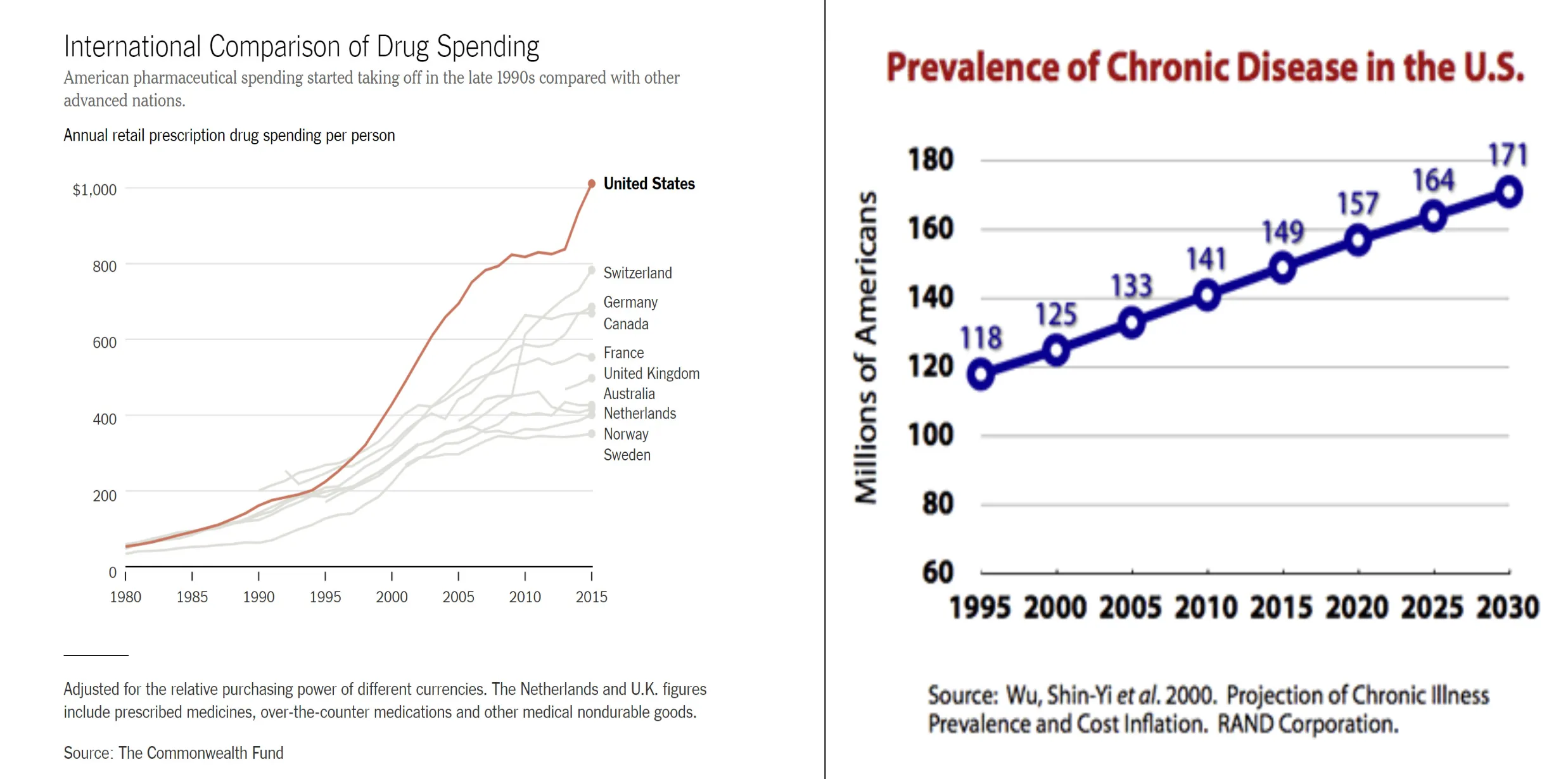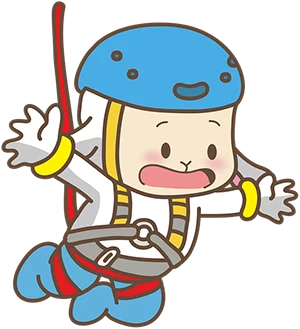
"To see what is right and not do it is a lack of courage or principle."
Confucius (551 BC – 479 BC) was a Chinese teacher, politician, and philosopher. By Simran Khurana (Updated March 18, 2017)
Medications and surgeries for chronic diseases cannot cure the disease but only relieve symptoms for a limited period at the painful cost of side effects and liver health damage. Despite this, the public has become addicted to drugs, partly because of the medical establishment and pharmaceutical companies that want to perpetuate the situation.
Symptomatic medications, including painkillers, should include comprehensive dietary recommendations and tips for changing diets and unhealthy lifestyles for chronic patients. Unfortunately, this is often not the medical reality in which we live.
Source: The New York Times. | The Marshall Protocol Knowledge Base.
The leap in drug spending per capita in recent decades is unthinkable. But clearly, it fails to cure chronic diseases.

Symptomatic treatments usually cannot cure the patient, as they do not eliminate the disease's causes.
- Chronic patients are often treated with the misconception that they suffer from an incurable disease. Therefore, treatments are only symptomatic and do not attempt to improve the patient's recovery. Symptomatic treatments perpetuate the patient's dependence on medication for the rest of their life without trying different approaches!
There are a few exceptions with a higher probability of symptomatic treatment curing chronic diseases.
- Relieving pain and other severe symptoms can dramatically improve mood. When a person is more energetic, there is a better chance of recovering from chronic diseases. The mechanism is very similar to the placebo effect. In this context, the placebo effect is relevant only shortly after the disease's onset and after taking medication.
- Recovery through symptomatic treatment exists but is not common. It may occur in relatively mild cases of chronic diseases.
- Chronic patients often reach the "disillusionment" stage, realizing they will remain dependent on medication for many years!
Is there a medical justification for painkillers for chronic patients? (The answer is "Yes")
- If the patient's suffering is unbearable, there is a justification for giving painkillers for extended periods. At the same time, the patient must understand that the treatment usually cannot cure the disease; over time, it is harmful.
- Often, the patient becomes accustomed to the drug treatment without understanding the far-reaching, long-term consequences of taking medication.
Surprisingly, modern medicine has no directive philosophy!
The lack of a directive philosophy of medical science is one of its sickest evils!
- The paradox of treating symptoms rather than the causes of the disease is well-known in the medical world. The paradox is the product of immense economic interests, culture, and modern life.
- Doctors who understood the paradox (and there are quite a few) began to apply functional medicine methods. The name is intended to disguise that they have undergone treatments whose primary purpose is to improve their lifestyle and diet, similar to various alternative medicine treatments.
- Link: Alternative medicine vs. Self-healing medicine. (Not the same)
Modern medicine does not have a unified philosophy concerning the distinction between disease causes, symptoms, triggers & catalysts. (Pathogens.)
Causes vs. Symptoms vs. Catalysts.
- In cases of first-time infectious diseases, pathogens are indeed the cause of the disease. (Such as COVID-19)
- The same pathogens are only triggers and catalysts in chronic stages because the human body is designed to overcome intruders. The underlying cause of chronic infectious or inflammatory diseases is always a weak immune system.
The required conclusions. (Which do not exist in reality).
The SWOT analysis points to a mirror image between the weaknesses and strengths of Modern Medicine and Self-Healing (Functional) Medicine. Thus, integration between them is required.
Link: Conventional Modern Medicine vs. Self-Healing (Alternative-Functional) Medicine.
- Modern medicine provides an excellent response to urgent and short-term cases where self-healing is impossible, such as genetic diseases, the elderly and children, pregnant women, emergency cases, and severe injuries. (Of all types)
- Conventional medicine has advanced diagnostic tools and lab tests essential for a better diagnosis.
- Self-healing functional medicine has inherent advantages in balancing the body, mind, and spirit required for recovery from severe illnesses, chronic diseases, and continuous disability. In all situations, the spirit's triumph over the body is part of recovery. (Physical and mental)
How does your body process medicine? - Céline Valéry.
Prolonged use of drugs causes a burden and severe liver damage.
The attending doctor is often considered a person who knows everything, which should not be disputed!
Link: Reducing drug intake before starting self-healing therapies.Besides, the doctor offers easy solutions, takes a pill, and moves on. Self-healing requires effort, time, and perseverance. The choice between the two alternatives is quite clear. The doctor does not have the time and ability to explain to people how to lead a healthy lifestyle. Factually, most doctors are not experts in the field of nutrition.
Natural nutrients (In foods and beverages) vs. supplements.
Link: Supplements I used in the past regularly and occasionally.
Drinking freshly squeezed juice and taking controlled solar baths enables us to minimize supplement intake.
- The body absorbs the nutrients in food better than those in supplements.
- Taking vitamin supplements may be harmful because you can feed the parasites.
Supplements during the recovery period.
- Due to low absorbency and compromised immune systems, patients may need extra antioxidants and a few nutritional supplements during recovery.
- For patients who regularly take traditional Chinese herbal medicines, I recommend asking your prescribing physician for the names of herbs in the medication. (From my experience, many of the herbs contain antioxidants.)
- Patients may need extra antioxidants and a few nutritional supplements due to low absorbency and compromised immune systems.
- There is an endless list of food supplements in powders, pills, and liquids. Do not get confused! They may have health benefits but are not stand-alone treatments; food supplements can cause side effects.
Herbal remedies can also cause side effects and contraindications.
Link: Herbal Antibiotics, Anti-protozoan drugs, and Corticosteroids.
- Herbal remedies are also not intended for prolonged use; most have relatively low concentrations of active ingredients, and therefore, their potential harm is usually lower than that of pharmaceuticals.
Medications have played a significant role in many generations. Still, it is essential to understand the drugs' limitations and functions, especially for prolonged use in chronic diseases.
I wish everyone good health without taking any medication at all.

To recover from chronic diseases, the causes of the disease must be neutralized, while medications for chronic diseases treat only the symptoms! Therefore, they perpetuate the disease rather than cure it.

